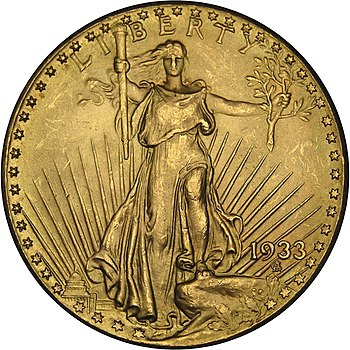Portal:Business
The Business and Economics Portal Business is the practice of making one's living or making money by producing or buying and selling products (such as goods and services). It is also "any activity or enterprise entered into for profit." A business entity is not necessarily separate from the owner and the creditors can hold the owner liable for debts the business has acquired. The taxation system for businesses is different from that of the corporates. A business structure does not allow for corporate tax rates. The proprietor is personally taxed on all income from the business. A distinction is made in law and public offices between the term business and a company such as a corporation or cooperative. Colloquially, the terms are used interchangeably. (Full article...) Economics (/ˌɛkəˈnɒmɪks, ˌiːkə-/) is a social science that studies the production, distribution, and consumption of goods and services. Economics focuses on the behaviour and interactions of economic agents and how economies work. Microeconomics analyses what is viewed as basic elements in the economy, including individual agents and markets, their interactions, and the outcomes of interactions. Individual agents may include, for example, households, firms, buyers, and sellers. Macroeconomics analyses the economy as a system where production, distribution, consumption, savings, and investment expenditure interact, and factors affecting it: factors of production, such as labour, capital, land, and enterprise, inflation, economic growth, and public policies that have impact on these elements. (Full article...) Selected articleCracker Barrel Old Country Store, Inc. is an American chain of combined restaurant and gift stores with a Southern country theme. The company was founded by Dan Evins in 1969; its first store was in Lebanon, Tennessee, which remains the company headquarters. The chain's stores were at first positioned near Interstate highway exits in the Southeastern and Midwestern US, but it has expanded across the country during the 1990s and 2000s. As of September 18, 2012, the chain operates 630 stores in 42 states. Selected image
Selected economy The economy of Sweden is a highly developed export-oriented economy, aided by timber, hydropower, and iron ore. These constitute the resource base of an economy oriented toward foreign trade. The main industries include motor vehicles, telecommunications, pharmaceuticals, industrial machines, precision equipment, chemical goods, home goods and appliances, forestry, iron, and steel. Traditionally, Sweden relied on a modern agricultural economy that employed over half the domestic workforce. Today Sweden further develops engineering, mine, steel, and pulp industries, which are competitive internationally, as evidenced by companies such as Ericsson, ASEA/ABB, SKF, Alfa Laval, AGA, and Dyno Nobel. Sweden is a competitive open mixed economy. The vast majority of Swedish enterprises are privately owned and market-oriented. There is also a strong welfare state, with public-sector spending accounting up to three-fifths of GDP. In 2014, the percent of national wealth owned by the government was 24%. (Full article...) Selected quoteEvery manufacturer is confronted with the problem of finding the most economical quantity to manufacture in putting through an order. This is a general problem and admits of a general solution, and, however much it may be advisable to exercise judgment in a particular case, such exercise of judgment will be assisted by a knowledge of the general solution. The writer has seen the practical workings of a first-class stock system and does not wish to be understood as claiming that any mere mathematical formula should be depended upon entirely for determining the amount of stock that should be carried or put through on an order. This is a matter that calls, in each case, for a trained judgment, for which there is no substitute. There are many other factors of even more importance than those given in this discussion. But in deciding on the best size of order, the man responsible should consider all the factors that are mentioned. While it is perfectly possible to estimate closely enough what effect these factors will have, the chances are many mistakes costing money will be made. Hence, using the formula as a check, is at least warranted. Given the theoretically correct result, it is easy to apply such correction factors as may be deemed necessary.
TopicsRelated WikiProjectsDid you know (auto-generated) -
On this day in business history
General imagesThe following are images from various business-related articles on Wikipedia.
More did you know
Business news Wikinews Economy and business portal
|






































